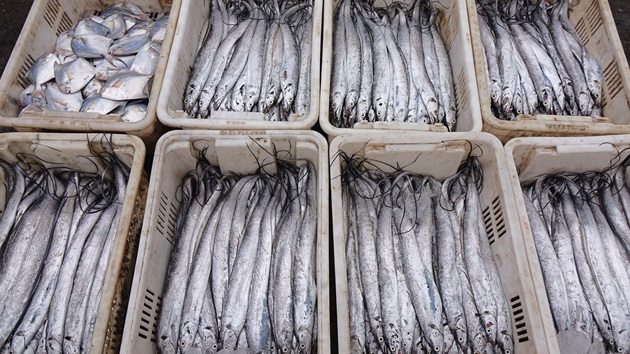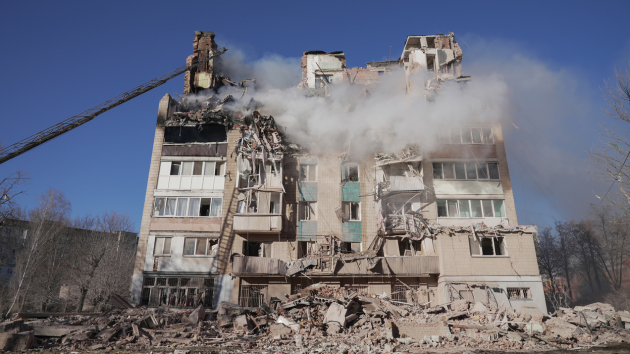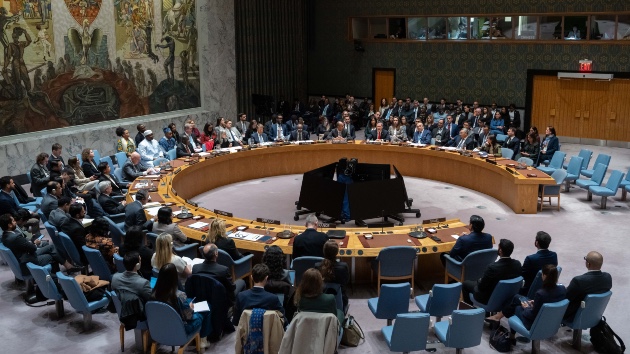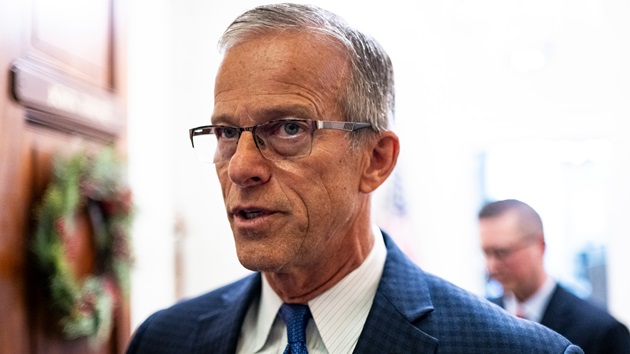China to suspend imports of Japanese seafood in latest escalation over Taiwan comments
Written by ABC Audio ALL RIGHTS RESERVED on November 19, 2025

(HONG KONG) — China will suspend imports of Japanese seafood, according to ABC News partner NHK, escalating a diplomatic dispute triggered by Japanese Prime Minister Sanae Takaichi’s recent comments suggesting Tokyo could take military action if China attacks Taiwan.
Chinese authorities said the import halt is necessary to monitor treated wastewater being released from the Fukushima Daiichi nuclear power plant, according to Japanese broadcaster NHK.
China had only recently resumed buying Japanese marine products after imposing a ban when Japan began releasing the wastewater in 2023 after the Fukushima plant was damaged in the 2011 earthquake.
The move comes as tensions spike between the two countries following Takaichi’s remarks to parliament that a hypothetical Chinese attack on Taiwan could constitute a “survival-threatening situation” for Japan — a formal classification that could justify a military response. Beijing saw this statement as a challenge to its claim of sovereignty over independent Taiwan.
Chinese Foreign Ministry spokesperson Mao Ning said Wednesday that Takaichi’s statements “fundamentally damaged the political foundation of China-Japan relations,” adding that there was “no longer a market for Japanese seafood” as a result.
Japan has since warned its citizens in China to take safety precautions and avoid crowded places. China has also advised its citizens against traveling to Japan and postponed the release of two Japanese films.
A senior Japanese official met his Chinese counterpart in Beijing on Tuesday, but the talks made no progress. Chinese diplomat Liu Jinsong later made rare comments to state media, saying he was “dissatisfied” with the meeting.
Mao warned Wednesday that “if Japan refuses to retract its remarks, or even continues to make wrong moves, China will have no choice but to take severe and resolute countermeasures, and Japan will bear all the consequences that arise.”
China has also summoned Japan’s ambassador and publicly warned that Japan would face a “crushing military defeat” if it intervened militarily in Taiwan.
The dispute marks one of the sharpest downturns in relations between China and Japan in recent years, reopening long-standing tensions over security, history and regional influence in the Indo-Pacific.
On Sunday, Chinese coast guard vessels sailed through waters surrounding a group of disputed East China Sea islands. Japan’s coast guard said it drove the ships away. The islands, known as the Senkaku in Japan and the Diaoyu in China, have long been a flashpoint, particularly since Japan nationalized them in 2012.
Japan also scrambled fighter jets Saturday after China flew a drone between Taiwan and Japan’s Yonaguni Island in a move Tokyo called provocative, though not unprecedented.
Chinese state media and diplomats have escalated rhetoric online, including one consul general who posted, and then deleted, a comment saying “the dirty neck that sticks itself in must be cut off.”
U.S. Ambassador to Japan George Glass weighed in on social media, criticizing Chinese officials and writing that “Halloween has been and gone” after a Chinese diplomat called Takaichi an “evil witch.”
Meanwhile, China’s travel warning for Japan has added economic pressure as Japanese tourism and retail stocks fell 5% to more than 10% just this week amid fears that a downturn in Chinese visitors, who make up roughly a quarter of all inbound tourism to Japan, could significantly affect the sector.
Japan has attempted to cool tensions by sending senior envoys to Beijing and reiterating that its stance on Taiwan and the “One China” policy has not changed but China’s foreign ministry said Premier Li Qiang does not plan to meet Takaichi during this week’s G20 summit in South Africa.
Japan ruled Taiwan for 50 years beginning in the late 19th century, leaving complex historical, cultural and economic ties.
After World War II, the island was placed under the control of China’s Nationalist government, which later fled to Taiwan after losing the civil war to the Chinese Communist Party. The Communist government in Beijing, however, claims sovereignty over the island despite having never directly governed it.
Japan today maintains unofficial relations with Taiwan but has grown more outspoken about regional security concerns. Several of Japan’s westernmost islands lie approximately 70 miles away from Taiwan.
The dispute is unfolding as competition between the United States and China has been intensifying across the Indo-Pacific as Japan hosts the largest concentration of U.S. military personnel outside the United States.
Washington’s response so far has been measured but firm after Glass’ comments condemning hostile rhetoric from Chinese diplomats as unprofessional and urging de-escalation without directly challenging China’s core claims on Taiwan.
Copyright © 2025, ABC Audio. All rights reserved.





